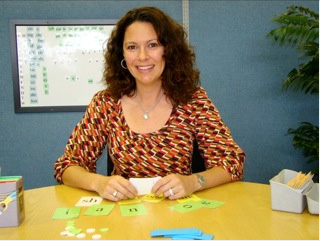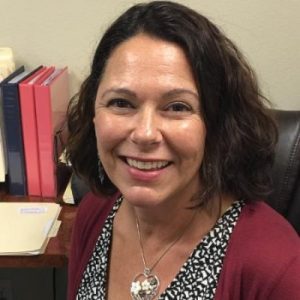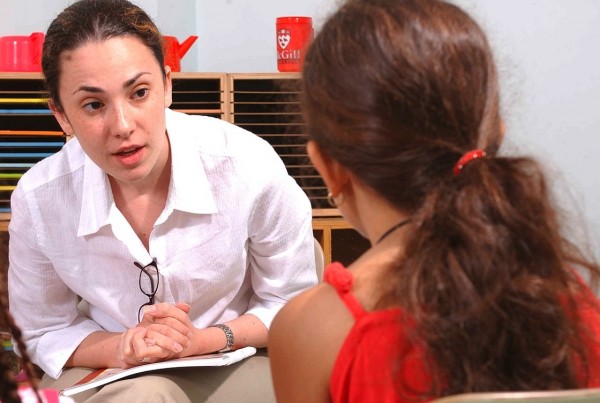
by PRIDE Reading Program Admin | Dec 12, 2017 | A PRIDE Post, ADHD

The school year is in full swing and the homework load is heavy! Many parents here at PRIDE complain to us frequently that their kiddo just can’t get through the homework load and it is causing a lot of tension and frustration. I put together a few tips and strategies on how to lighten the completion time and reduce the stress at home and just finish that homework quicker for you parents out there with an ADHD child. Hope this helps!
1. Schedule an established time to do homework daily.
Most children with ADHD need set routines and schedules in order to feel success. Help your child find a time for homework that works out in both your daily schedules. Some children do best right after school, whereas others need an outside fresh air break first. Because you know your child better than anyone, find that perfect time and make it part of the daily routine. This will help get through the workload quicker. I have my child take the dog for a walk around the block first, then come home to some milk and cookies and then settle down for homework. This routine works really well for us on a daily basis, and my son feels comfortable knowing the daily routine.
2. Take 5-minute breaks after every 20 minutes.
Find a structured break activity that your child can do after every 20 minutes of work. This could be a yoga stretch on the floor, deep breathing activities, etc. If you keep the break structured, the child will understand this as part of the routine and not a time to wander off and get distracted and lose focus. Short, frequent breaks help children recharge. This should get your child back to a focused state of mind and get through that homework quicker. I sometimes have my son do push-ups or chin-ups (he is pretty athletic and likes physical movement) we make it a game of increasing the repetitions each time.
3. Let your child stop when they can’t continue on.
If your child is too tired or frustrated to finish the homework, let him or her stop!
Experts in the field of education usually recommend that elementary students do 10 minutes of homework per subject per day. If your child’s homework sessions are taking longer than this, schedule a meeting with your child’s teacher to discuss the problems that your child is facing. It could be that the amount of homework is overwhelming or that it is too difficult for your child. If your child has problems focusing, writes and reads very slowly, or needs extra time understanding concepts, then homework will consistently take longer to get through. Make a plan with the teacher so that your child will feel success with homework and everyone’s time will be well spent.
4. Request an extra set of textbooks to use at home.
My son forgets his book at school at least twice a week. This is pretty common for a kid with ADHD. Students with organizational issues often leave their books at school. I bought a copy of each of his textbooks online used. This way we always have a copy at home and spend less time getting back to school to recover all the forgotten items. Having the homework material every day at home is crucial. Once a student falls behind in their coursework, it is extremely difficult to get caught up. Since so many schools do not have extra copies, you will probably need to purchase extra copies on your own. This will save many after school trips back to the school and give you more time to get through that homework load instead.
5. Find the right location for your child to do daily homework.
Make sure it has good lighting and a clear workspace with no clutter around. Children with ADHD become easily distracted at their workstations. Keep the homework area free of anything except a good supply of paper, sharpened pencils and a set of erasers, pens, and a computer or laptop. This will keep your child focused and hopefully help them get through that homework load a lot faster. I let both my children find their perfect spot. Both of my kids like to lay on their beds with their laptops and spread al the papers and books around the bed. It works for them.
6. Help your child organize papers for after-school homework and prepare for the next school day.
Watch your child put completed homework in the proper folders and put the papers that need to stay home in an accordion file that stays at the child’s workstation at home. All work that comes home should go in this labeled accordion file for future tests and quizzes (especially when they are in Middle and High School). All work should be saved until the semester is over. My son needs a lot of help with this as his homework usually ends up all over the floor. We go through it together. Getting through the homework is already incredibly challenging for him and I prefer to pick my battles. I do not mind helping him organize and put it where it needs to go. My daughter on the other hand always likes to organize her own backpack and put everything away nicely and neatly. Sigh… wish a little of that would rub off on her brother.
7. When your child has completed their homework, always praise them for a job well done.
If a parent conveys the message that a child is capable and worthwhile, the child will begin to believe this. Being supportive, having a structured learning environment and consistent routines will encourage success and motivation at home.
Have any other ideas that I missed? Please include them in the comment section below. Thank you so much for visiting my blog today!

Karina Richland, M.A., is the Executive Director of PRIDE Learning Centers, LLC, an educational company that works with children in special education and focuses on reading, writing and comprehension help. She is also the author of the PRIDE Reading Program, a multisensory Orton-Gillingham reading, writing and comprehension curriculum that is available worldwide for parents, tutors, teachers and homeschoolers of struggling readers.
Karina has an extensive background in working with students of all ages and various learning modalities. She has spent many years researching learning differences and differentiated teaching practices.
You can reach her by email at karina@pridelearningcenter.com or visit the website at www.pridelearningcenter.com

by PRIDE Reading Program Admin | Mar 12, 2017 | A PRIDE Post, ADHD
Following directions is one of the most difficult tasks for a child with ADHD to master. Children with ADHD are easily distracted and have a tendency to get sidetracked a lot. With a lot of patience and support, you can help your ADHD child learn to follow directions using these very simple tips and strategies.
1. Organize and simplify the directions:
Keep the directions as simply stated as possible so that your child with ADHD can remember them easily and not get lost in your words. Make the most important information stand out. “Sara, I want you to get your jacket, get your backpack and put on your shoes, then come back here to me. Got that? Jacket, backpack, shoes. Go!”
2. Use multisensory strategies to help the memory:
You can sing and dance the directions with your ADHD child. “jacket, backpack, shoes, yee-hah!” You can have your child clap his hands or tap the table for each step he needs to do.
3. Teach your child to repeat the directions:
Have your child repeat each direction a few times. “get out a piece of paper, a pencil and write my name at the top of the paper. Paper, pencil, name. Paper, pencil, name.”
4. Make charts for procedures or routines that are repeated:
This is especially helpful for organizing and keeping a routine. For example if you have a list of items that need to be done each day before school you can create a checklist.
1. _____ make my bed.
2. _____ put dirty clothes in the hamper.
3. _____ feed the dog.
As your child completes a step, he/she can check that step off the list. This will give your child some direction and keep the attention on the task at hand.
5. Be supportive and stay positive!
Nagging your ADHD child is not going to assist them in learning strategies and skills to follow directions. You can provide support for your child by:
- prompting your child for listening skills. “I am going to give you the directions, I would like you to please look at me so I know you are listening.”
- asking your child how you can provide a reminder for them without nagging them. They might suggest a hand gesture or a tap on the wall, a wink of the eye, etc.
- offering understanding when your child feels frustration. ” I understand it is hard to keep track of doing so much at once. Would you like me to help you put together a list that we could start checking off after each step?”
- praising your ADHD child often. If they don’t complete the task praise them for making an effort. If your child fails to complete a task, encourage her/him to try to get it finished. Use positive encouragement.
Learn more about the New PRIDE Reading Program
_________________________________________________________________________________________________

Karina Richland, M.A. is the owner of PRIDE Learning Centers, located in Southern California. Ms. Richland is a reading and learning disability specialist. Ms. Richland speaks frequently to parents, teachers, and professionals on learning differences, and writes for several journals and publications. You can visit the PRIDE Learning Center website at: www.pridelearningcenter.com

by PRIDE Reading Program Admin | Jan 22, 2017 | A PRIDE Post, ADHD
If your child has difficulty paying attention in a way that adversely impacts his or her ability to learn, they may have ADHD. ADHD is often first suspected by attentive parents and teachers who notice these symptoms:
- Easily Distracted by Noises
- Difficulty Sitting Still
- Displays excessive excitement/protestation at changes in the routine
- Has difficulty transitioning from one task to another
- Leaves assignments incomplete
- Has difficulty coping with physical distress such as hunger, thirst, and mild bodily pains
These symptoms listed above are common symptoms that kids with ADHD may demonstrate in a school or home environment. A child with ADHD will experience these types of symptoms across environments, meaning their symptoms will not be confined to just occurring at home, or just occurring at school.
The following are suggestions for helping children with these types of symptoms to function more effectively and adaptively:
- Clear the child’s desk between assignments to minimize distractions and promote organization.
- When working on math problems, give the child one problem at a time, gradually increasing the amount to two or three at a time, rather than a full page of problems. Presenting many problems at once may overwhelm a child with attention problems.
- Limit choices in problem solving techniques to ones that the child has already demonstrated successfully, thereby teaching the child to rely on his or her strengths.
- Schedule breaks to allow the child to release pent up energy.
- Always make and maintain eye contact when giving simple, direct instructions. This promotes attentiveness.
- Provide incentives for completing assignments and also reward the ABSENCE of undesired behavior patterns. This creates an effective pattern of reinforcement.
- Let the child know what is expected of him/her when giving assignments, thus helping the child to focus on what is crucial to successfully completing the assignment.
- Make sure your child always understands the directions before beginning his or her work.
These suggestions can help a child with attention problems to function more effectively on in-class assignments as well as homework assignments. They can help manage the child’s difficulties, but do not represent successful treatment of their attention problems. In order to treat your child’s attention difficulties effectively, contact a mental health professional such as a clinical psychologist or psychiatrist to begin the assessment process to definitively determine an ADHD diagnosis. Correct assessment is crucial as many times a learning disability can appear to be ADHD, but their treatment options are actually vastly different.
Learn more about the New PRIDE Reading Program
______________________________________________________________________________________________________
Dr. Jared Maloff is a Licensed Clinical Psychologist working with adult, adolescent and child clients in Beverly Hills, CA. Dr. Maloff also conducts psychological testing for clinical, educational and forensic issues with both adults as well as children. This includes obtaining testing accommodations for standardized tests such as the SAT, LSAT, GMAT, Dental Boards, California State Bar Exam, and most others. Below is a listing of the diagnoses and symptoms that Dr. Maloff often treats in his clinical work:
ADHD, Adult ADHD, Asperger’s Disorder, Autism, Anxiety, Bereavement and Loss, Body Dysmorphia, Depression, Hypochondriasis, Learning Disabilities, Post Traumatic Stress Disorder, Problems with Motivation, Self Esteem Issues, Social Phobia, Somatization Disorders, Substance Abuse and Addiction, Trouble with Relationships. Learn more at www.beverlyhillspsychologist.com

by PRIDE Reading Program Admin | Nov 7, 2016 | A PRIDE Post, ADHD
Nearly 10 percent of children and 4 percent of adults in the U.S. have been diagnosed with ADHD. But studies suggest that while many people with ADHD still go undiagnosed, others are wrongly diagnosed with ADHD when they are instead suffering from a range of other disorders. ADHD is frequently portrayed and covered in the media and it is now part of the American lexicon. Many people notice that their children are struggling with a lack of attention and quickly assume that they must have ADHD. Often, parents and teachers can feel so certain that a child has ADHD that their strong beliefs can influence important medical decisions. With the absence of psychoeducational testing confirming or disconfirming the presence of ADHD, psychiatrists, pediatricians and general practitioners often prescribe stimulant medication to children who superficially appear to have ADHD, but many times actually do not!
Like many DSM-IV diagnoses, the symptoms of ADHD actually overlap with many other diagnoses making a correct ADHD diagnosis more difficult than it may seem. Inattention is just one individual symptom of ADHD, not the hallmark of the disorder that many think it is. ADHD is a disorder of the brain’s frontal lobe. The frontal lobe controls what are known as Executive Functions which include the skills of: Planning, Working Memory, Attention, Problem Solving, Cognitive Flexibility, Emotional Regulation and Inhibitory Control of Behavior. The hallmark symptoms that separate ADHD from all other diagnoses involves the disruption of one’s Executive Functions and manifest as a lack of self control, recklessness, thoughtlessness, and an inability to think of about behavior before acting. This kind of impulsive behavior can range from being extremely disruptive (i.e. the child that runs around the room during class) to more mild (i.e. the child who interrupts others while they are speaking).
Basing an ADHD diagnosis solely on criteria such as inattention or hyperactivity is what frequently leads to misdiagnosis. An incorrect diagnosis of ADHD can potentially be extremely damaging to a child (or an adult) because academic and medical decisions are frequently made based on this diagnosis. Parents who are concerned about their children having ADHD should consult with an expert in the field who conducts psychoeducational evaluations in order to correctly differentiate ADHD from learning disorders, anxiety disorders, depression, Bipolar Disorder, and Asperger’s Syndrome. These other diagnoses are frequently mistaken for ADHD and all lead to diverging courses of treatment and academic intervention.
Children who are experiencing depression and anxiety are often preoccupied with anxious and depressed thoughts which can be extremely distracting and may manifest as a child who is struggling to pay attention due to a mood disorder rather than ADHD. Children with ADHD can sometimes struggle socially because they may be so scattered in their thinking that they have difficulty listening to what peers say leading them to miss subtle social cues. This is often mistaken for Asperger’s Syndrome which is a much more severe disruption of a child’s ability to function in social settings. At times the highly energized and impulsive behavior of a manic episode is mistaken for ADHD. This is particularly dangerous as the stimulant medication that is successful in treating ADHD, makes manic episodes much worse. The symptoms that differentiate a manic episode from ADHD are severe insomnia, irritability, and grandiosity.
Given the wide range of disorders that can mimic the appearance of ADHD, it is prudent for concerned parents to seek a psychoeducational evaluation for their children to ensure that the diagnosis that is made is the correct one. This will lead to much more effective and expedient treatment and remediation of academic weaknesses.
Learn more about the New PRIDE Reading Program
__________________________________________________________________________________________________________
Dr. Maloff is a Clinical Psychologist who practices privately in Beverly Hills. He specializes in psychological and psychoeducational testing. His work is frequently used to inform medical, educational and psychotherapeutic decision making. Dr. Maloff frequently participates in IEP meetings to ensure that private schools and public school districts are meeting a child’s academic needs. He also provides expert testimony regarding psychological and psychoeducational testing in legal proceedings.
Jared Maloff Psy.D.
(310) 712-5480
www.BeverlyHillsPsychologist.com

by PRIDE Reading Program Admin | Oct 16, 2016 | A PRIDE Post, ADHD, Dyslexia
The diagnosis of dyslexia is often missed by child psychiatrists, who are frequently asked to validate a diagnosis of attention deficit hyperactivity disorder (ADHD), generated from a psychological evaluation because ADHD is a fairly common disorder with a prevalence of 10% in the US, and because roughly 80% of children with ADHD respond to stimulant medication, the role of a child psychiatrist is often circumscribed to diagnosing and treating ADHD with medication. However, because the dyslexia/ADHD co-morbidity, i.e., “the parallel track diagnosis” of ADHD and dyslexia has been described to be in the range of 10% (Shaywitz, 1988), child psychiatrists often confuse the 20% population of children and adolescents who epidemiologically are not expected to respond to stimulant medications with children with disorders of dyslexia/ADHD comorbidity.
Bruce Pennington (1991) an established authority in the field of dyslexia has suggested that there is no robust two-way association between dyslexia and ADHD, i.e., that increased prevalence of dyslexia in children with ADHD is lacking in several studies, whereas there are increased rates of ADHD in dyslexic samples described. To translate this into a more comprehensive language, I quote my former teacher at UCLA the late Dr. Dennis Cantwell who said:
“When you hear horse hooves around the corner you should suspect the zebra, because if you don’t – you may miss the unicorn.”
Whenever I evaluate a child who has been referred for assessment of probable ADHD, I also include a screening instrument for dyslexia as part of the evaluation. Conversely, if a child who has been properly diagnosed with dyslexia is referred to me for further assessment, I assume that she/he may also have dyslexia/ADHD comorbidity. It is important to remember that although the diagnostic statistical manual (DSM) has trained us all into the habit of diagnosing by categories; many of these disorders are not necessarily categorical, instead present on a dimensional range. That is to say that a child may have mild, moderate or severe dyslexia, as well as the equivalent degrees of ADHD severity. A few additional points deserve to be emphasized on dyslexia and ADHD comorbidity:
1. If a child is diagnosed with dyslexia, there are no medication treatments proven to be efficacious. The treatment of dyslexia is complex. According to authors like Pennington and others it involves a phonic-based approach to reading because the problem of phonological coding is so central to the disorder. Examples of programs, which teach letter sound relations, are the Orton Gillingham, DISTAR, etc. The issue of remediation of spelling dyslexia seems to be fairly complex and several centers do not make spelling a direct target of remediation.
2. Authors like Pennington have advised against the idea of parents tutoring their dyslexic children, not just because they lack specific expertise but because there is a conflict between the two roles that make a parent-child tutoring situation too emotionally charged to be successful.
3. I believe a psychiatrist should treat whatever degree of inattention secondary to ADHD may exist on a child with dyslexia. While minimizing any potential side effects from stimulant medication, i.e. loss of appetite and weight, it is worthwhile optimizing inattention deficits through the prescription of medication on a child with dyslexia.
4. There are diagnostic boundaries that need to be monitored on a longitudinal basis. In other words, if the expectation of parents or teachers is that with remediation of inattention through medication management, deficiencies secondary to dyslexia will also fall into place, these assumptions have to be identified and corrected. This is often a set up for delaying the necessary treatment of a child with dyslexia. This delay is often painful to witness because the large majority of children with untreated dyslexia eventually become demoralized, some of them clinically depressed. I have seen in 15 years of practice, children with dyslexia who barely compensate for their deficiencies in an educational environment that is still very alphabetic so to speak, for example in the teaching of languages, (heavily relying on grammar). As time goes by, children with untreated dyslexia become school avoidant, and often resort to maladaptive patterns in order to compensate for loss of self-esteem.
For more information regarding dyslexia/ADHD morbidity or to have your child evaluated for a screening please feel free to contact Dr. Pablo De Amesti Davanzo below.
Learn more about the New PRIDE Reading Program
________________________________________________________________________________________________
Dr. Pablo De Amesti Davanzo, MD is Senate Emeritus of Psychiatry, University of California, Los Angeles and former National Institute of Mental Health (NIMH) Career Development Awardee. He completed his residency training in Psychiatry at Duke University in 1993 and his fellowship training in Child and Adolescent Psychiatry at UCLA in 1995. He is currently the psychiatrist of the Child and Family Guidance Center Northpoint Intensive-Outpatient Day Treatment Center in Northridge, CA. Dr. Pablo Davanzo can be reached by voicemail at his Brentwood office (310) 571-1519.

by PRIDE Reading Program Admin | Mar 15, 2016 | ADHD, Dyslexia, Reading Skills, Summer Programs
Come to our Open House to learn about our specialized summer camp in three Orange County locations.
Our summer reading camp at PRIDE Learning Center will run weekly from June – August to accommodate busy schedules and traveling families. Children can attend from either 9:00am – 12:00pm or 12:30pm – 3:30pm Monday – Friday. All teachers are credentialed and deliver one-on-one Orton-Gillingham language and reading lessons. We will have locations in Newport Beach, Yorba Linda and Mission Viejo.
We will be in Orange County on Saturday, April 16th from 10:00am – 1:00pm at the PRIDE Mission Viejo Center. The address is 27001 La Paz Road #354 in Mission Viejo, CA 92692. Join us to learn more about our program, meet our staff and register for our summer camp. We will also be offering reduced rate assessments if you would like to bring your child in for this special event.
Individuals interested in the Open House in Orange County can call (949) 484-0230 to RSVP and schedule an assessment or email info@pridelearningcenter.com.








